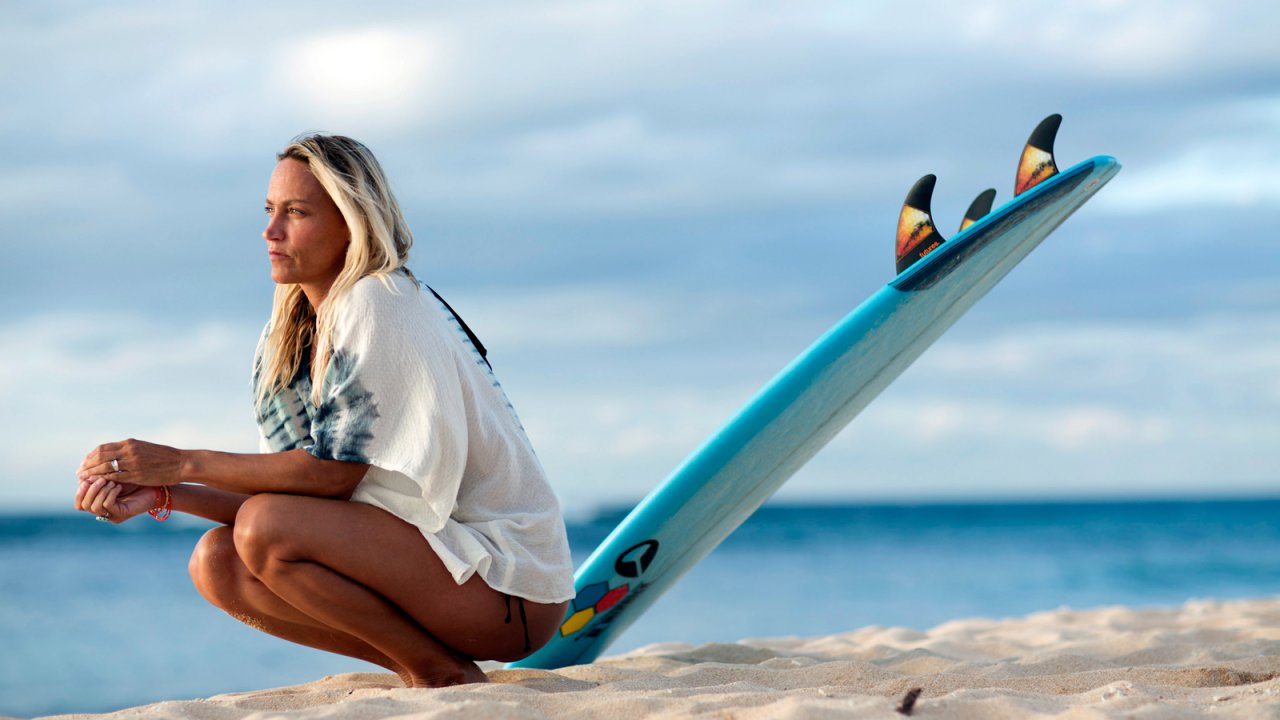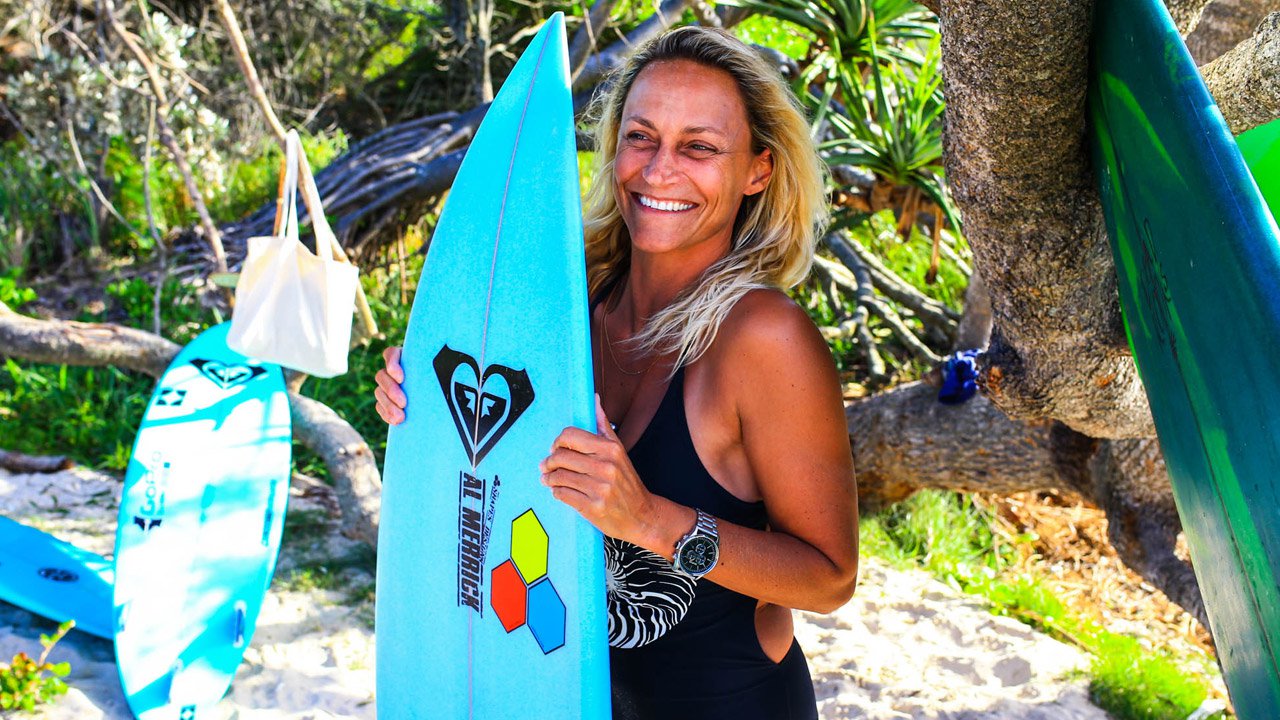4x World Champ Lisa Andersen Discusses Pay Equality
“The dreams are just going to get bigger.”
Besides an impeccable collection of surfboards—mostly all shaped by Al Merrick save for a Michael Peterson fang-tail—in Lisa Andersen’s garage sit several plastic bins filled with artifacts from her life. Early family pictures of the few times they were all together and happy, old magazine and newspaper clippings and various other keepsakes—the same stuff we all collect over the course of our lives, Lisa just happened to win three world titles and ignite a revolution in women’s surfing.
These days, her kids are growing up fast, she has a new puppy and a bad back. She still loves surfing as much as ever and somewhere in the recesses of her soul laments the fact that she can’t compete the way she once did.
“Should I start training and go back on tour? Of course not, right?” she said, reacting to the news of pay equity in professional surfing. “I’m super happy for the girls and I know how far everyone’s come to get to this moment.”
Lisa pretty much wrote the book, or the script, on how to come from nothing and smash every barrier in front of you. Born into a turbulent household in Florida, she was a teenage runaway. Guided by surfing, she landed in Huntington Beach, sleeping on benches and in abandon houses. Before the Roxy revolution, before her four world titles, she was simply fighting to survive.

“Times were different. It was what it was. I would have loved to have more money in my pocket, but then when I did get money in my pocket, to me it seemed like a million bucks,” she said. “It was like, ‘Okay, where am I going to spend it all?’ Because I would spend it all. I didn’t learn much about how to take care of that side of the business.”
And while there were a number of women, and maybe a man or two as well, that were thinking about the long-term future of professional surfing, in the ‘90s Lisa and a handful of other ladies worked hard to shatter the world tour’s glass ceiling and prove that they belonged alongside the men on the world tour.
“Money was a very touchy subject, but again, it was just different,” told Lisa. “I don’t think any of us expected equal pay, but I do think we expected support in general. I think that was the biggest difference then. Not everybody had a sponsorship or the support to do the tour, much less win the prize money. At that point it was just about getting sponsorships, that was the main focus, just having the surf industry support you. That’s what it was.”
“I was very fortunate to have that support, but it didn’t come easy to me,” she continued. “I had to fight for it, try and convince people, preach and pray, steal and borrow to get that. But it was worth it in the end. I wouldn’t take any of it back. I respect everyone that had to follow that path and didn’t get what I got, but I also feel that, those were the times and we had to do what we had to do to get where we are now.”
As far as a united coalition of women on tour rallying for equal pay, as Lisa remembers, there wasn’t one.

“It was a hard subject to talk about because it would be a heated thing. You wanted to have respect amongst your peers, so you didn’t want to ruffle feathers or bring up something that would just piss off people,” she said. “You just went about your business, surfed the best you could, and tried to earn as much as you could to earn a living doing what you loved. For me, I wanted the respect of my peers, so I tried to stay out of politics and things like that. I just wanted to earn what I got. That’s it.”
And after a lifetime fighting for a paycheck, respect and her way of life, Lisa’s genuinely stoked on the recent WSL announcement that men and women will all receive equal pay.
“Social media has really helped us engage with all the amazing athletes. We get to know them personally almost just based on what they post. I think that’s helped in marketing them,” she explained. “They’ve had to elevate their careers to a level of professionalism, they’ve become role models in the eyes of the kids, and that’s made everyone button things up. These surfers, men and women, earn their respect. They do a very good job at doing their job. It’s really worth paying these guys and girls so we can all watch and let them be who they are. I think it’s fantastic.”
And if she’d had the same opportunities when she was a child searching for direction?
“It definitely shines a little light on the possibilities and the future of the sport,” she said. “It’s something that more kids can dream of and look forward to. We always want some sort of a positive outlook on things. It’s great because surfing’s always been a men’s club. With a lot of respect to the guys, that’s what I dreamed of, I looked up to them, and if it wasn’t for them I wouldn’t be where I’m at, but I think for the young kids, it’s just like, oh man, the dreams are just going to get bigger. What more could you ask for?”





Comments
Comments are a Stab Premium feature. Gotta join to talk shop.
Already a member? Sign In
Want to join? Sign Up